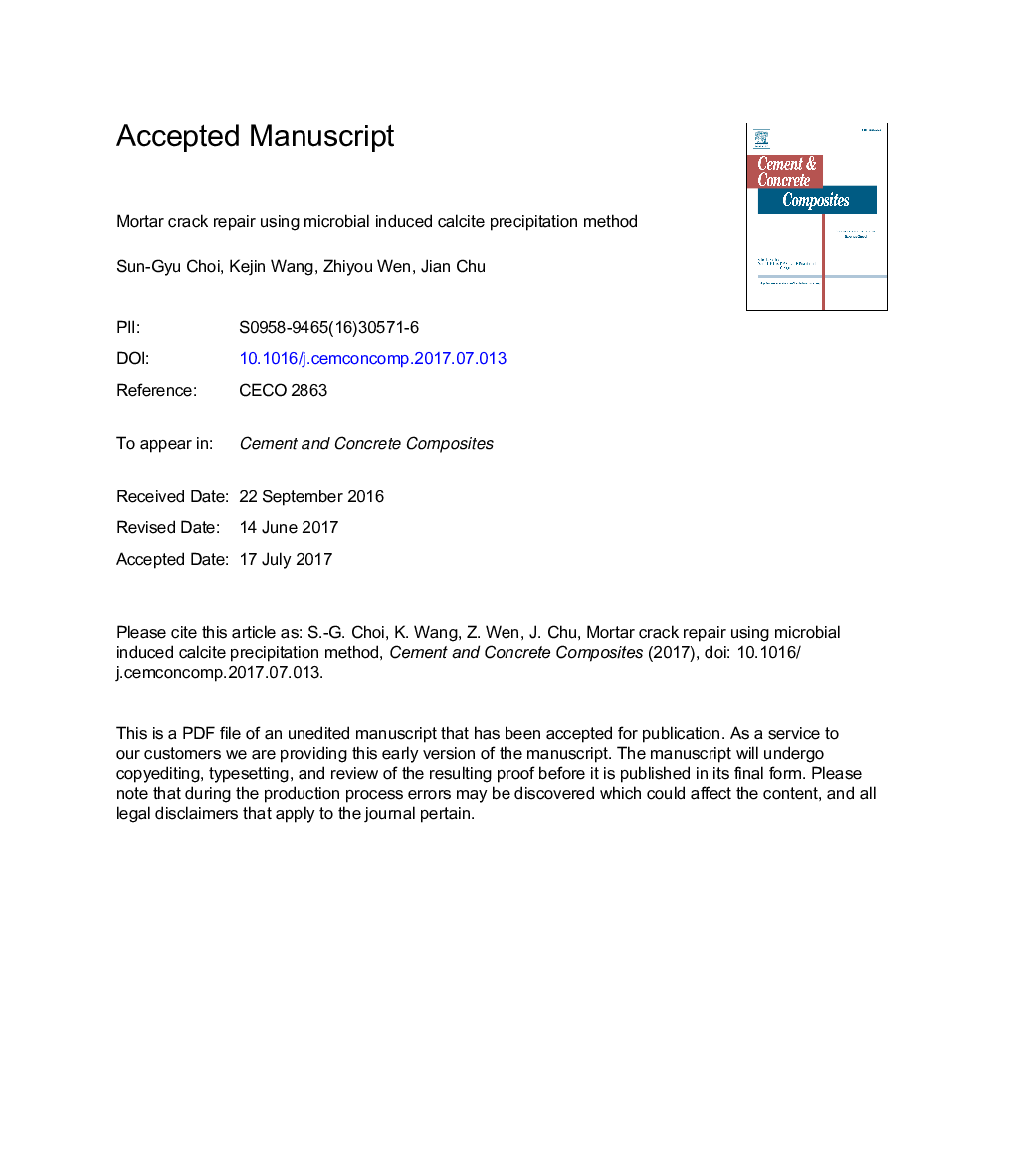| Article ID | Journal | Published Year | Pages | File Type |
|---|---|---|---|---|
| 5436813 | Cement and Concrete Composites | 2017 | 40 Pages |
Abstract
An experimental investigation has been carried out to repair pre-existing cracks in mortar using the microbiologically induced calcium carbonate precipitation (MICP) technology. In the study, 20 cylinder mortar samples (50Â mm in diameter and 40Â mm in height) were split to have cracks with various sizes. Sixteen of the cracked samples, an average width ranging from 0.15 to 1.64Â mm, were repaired using the MICP method, while four cracked samples, with an average width ranging from 0.17 to 1.72Â mm, were soaked under distilled water. The water permeability and splitting tensile strength (TS) of these repaired mortars were tested. The amounts of calcium carbonate (CaCO3) precipitated on the cracked mortar surfaces were evaluated. The morphology of the CaCO3 was observed under a scanning electron microscope (SEM). The results indicated that the MICP repair technique clearly reduced water permeability of the cracked samples. While water-treated samples were too weak to test, the MICP-repaired samples had TS ranging from 32 to 386Â kPa after 21 cycles of MICP solution treatment. A relationship between the TS and amount of CaCO3 precipitated was observed for samples with an average crack width between 0.52 and 1.1Â mm, which indicated that TS increased with the amount of CaCO3 precipitated on the crack surfaces. The SEM revealed that the precipitated CaCO3 had possibly two forms: vaterite and calcite.
Related Topics
Physical Sciences and Engineering
Engineering
Industrial and Manufacturing Engineering
Authors
Sun-Gyu Choi, Kejin Wang, Zhiyou Wen, Jian Chu,
